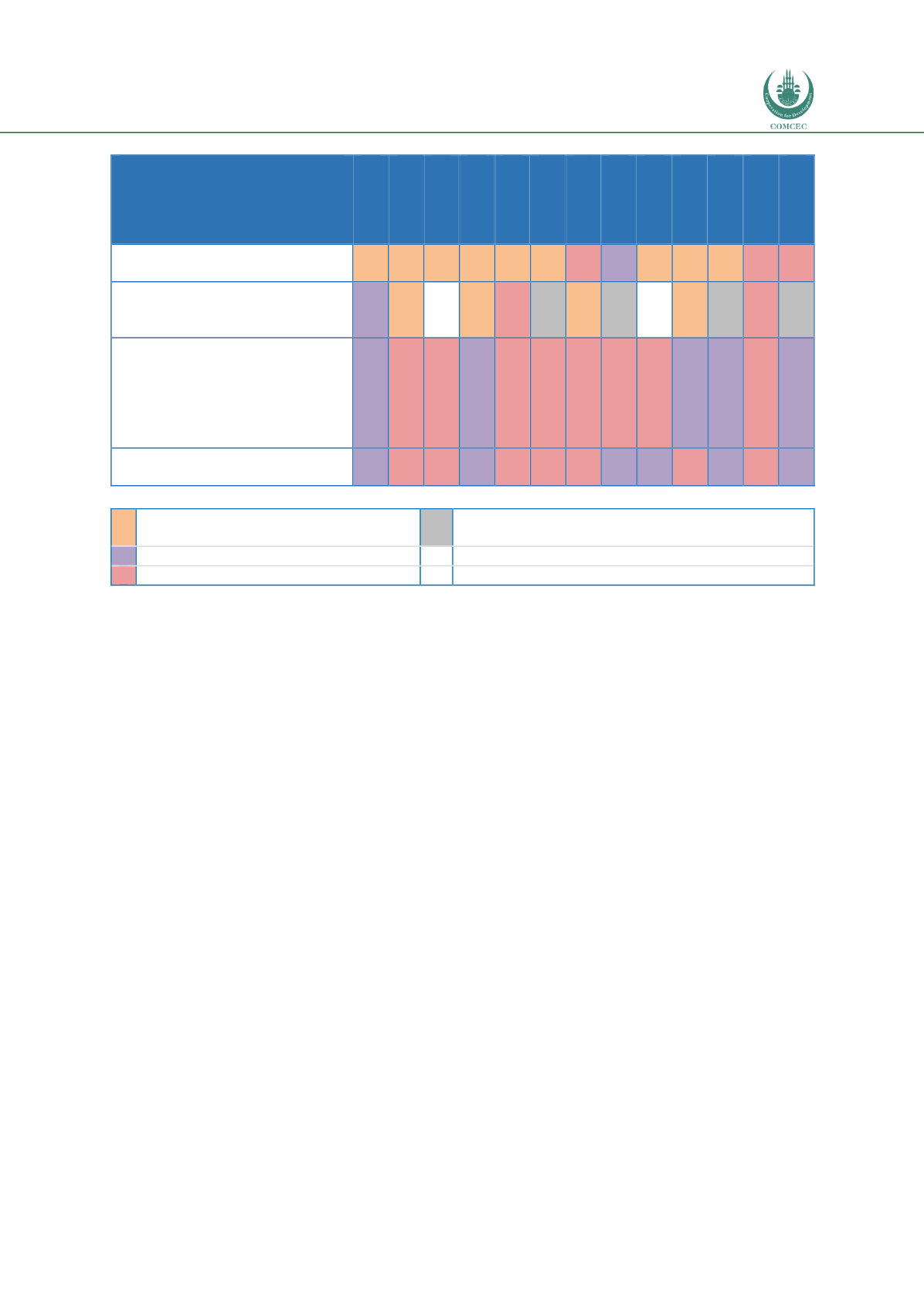

Governance of Transport Corridors in OIC Member States:
Challenges, Cases and Policy Lessons
113
Legal Documents
Armenia
Azerbaija
n
Bulgaria
Georgia
Iran
Kazakhst
an
Kyrgyzst
an
Moldova
Romania
Tajikista
n
Turkey
Uzbekist
an
Ukraine
Agreement on Joint Financing of
the Permanent Secretariat (2005)
Agreement on the development
of Multimodal Transport
TRACECA (2009)
*
Amendments to MLA regarding
Technical Annex to the basic
Agreement on Fundamental
Principles of Railway-Ferry
Terminals Operation on the Black
Sea and the Caspian Sea (2015)
TRACECA Multilateral permit.
User guide and annexes (2015)
Signature and ratification
Kazakhstan, Ukraine, Moldova and Turkey are in
the process of acceding this agreement
Signed, not ratified
*
with reservation
Not signed
Source:
www.traceca-org.org.
Harmonization of national regulations, standards and procedures
It is well established that progress towards a smooth transport infrastructure is made by addressing
soft infrastructure issues. For TRACECA, this was acknowledged in the MLA in 1998, considered one
of the main issues to address towards 2015 (TRACECA, 2007), and continues to be a major theme in
the latest TRACECA master plan developed in 2014 (LOGMOS Master Plan, 2014). Since the inception
of the MLA various technical annexes were added to the MLA, such as agreements regarding customs
and documentation processes and international cargo haulage permits. Although progress on this
topic was made, there is still much room for improvement on the ease of doing business in the region
as well as reducing excessive waiting times at the border (LOGMOS Master Plan, 2014). Such measures
require significant effort from all states to find consensus and from national parliament to adapt
national legislation.
For TRACECA in particular, soft infrastructure measures are challenging as the members are highly
diverse in terms of their legal basis (LOGMOS Master Plan, 2014). Some countries, most notably
Romania, Bulgaria, Turkey and Georgia, are more in alignment with WTO, EU or other international
standards, whereas other countries, mostly those who inherited institutions from the Soviet Union, are
still updating primary legislation. Moreover, different customs unions are overlapping the region, such
as the Eurasian Customs Unions compromising of Kazakhstan, Armenia and Kyrgyzstan.
7.3.4
Institutional framework
Organization and characteristics
The governance institutions, as foreseen by the MLA, are presented i
n Figure 7.8:















